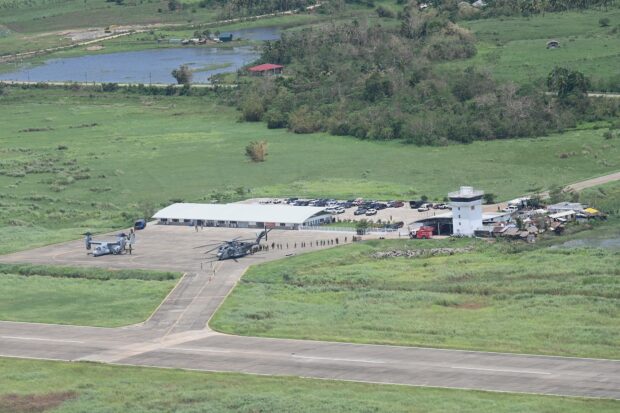
This photo shows an aerial view of Lal-lo Airport in Cagayan province, northern Philippines on August 3, 2023. The Lal-lo Airport is one of the additional sites for the Enhanced Defense Cooperation Agreement (Edca) between the Philippines and the United States. (AFP)
MANILA, Philippines — President Ferdinand “Bongbong” Marcos Jr. on Monday said the country has no plan to open additional Enhance Defense Cooperation Agreement (Edca) sites.
“The Philippines has no plans to open or to establish more Edca bases,” Marcos said during the Foreign Correspondents Association of the Philippines forum at the Manila Hotel.
In April 2023, Marcos allowed the United States access to four more Philippine military bases under the Edca, which allows Washington to store and station equipment and troops there.
Three of these Edca sites, two in Cagayan and another one in Isabela, face Taiwan, which China regarded as a renegade province subject to reunification.
These irked Beijing, stressing that the agreement was made so that Washington could “encircle and contain China,” which would drag the Philippines into “the Taiwan question,” a claim that was rejected by Manila.
Marcos noted that the additional Edca sites were a reaction to a Chinese ship’s assault on Filipino vessels in the West Philippine Sea.
“These are the reactions to what has happened in the South China Sea, to the aggressive actions that we have had to deal with: the water cannoning, the lasers, the collision, the blocking of our banca, our fishermen, the putting of barriers across Scarborough Shoal, this is a reaction to that. This did not cause that. That happened before we had Edca,” Marcos said.
Beijing’s actions are based on its assertion of sovereignty in the entire South China Sea, including most of the West Philippine Sea, even if such a claim has been effectively invalidated by a July 2016 international tribunal ruling that stemmed from a case filed by Manila in 2013.